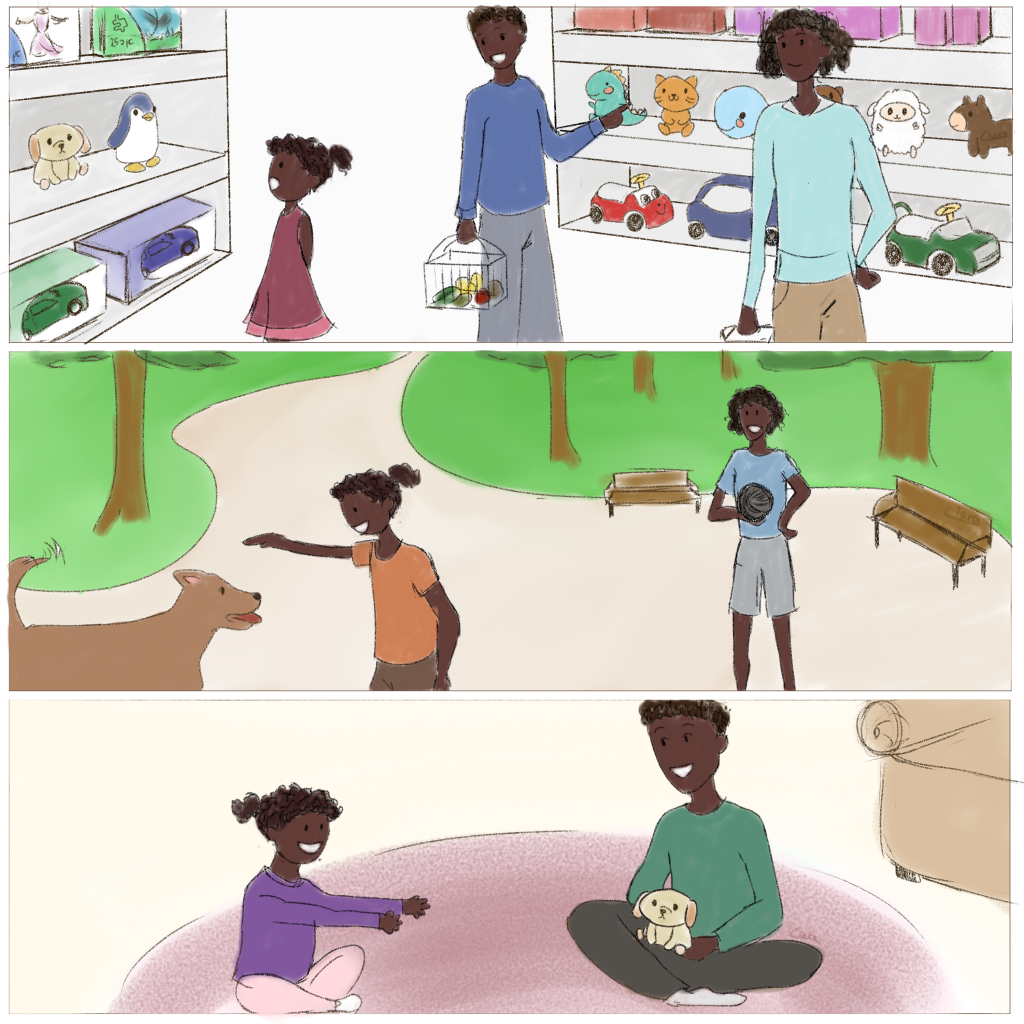How can you use what your child is interested in to grow their vocabulary?

Think of the hours on end you can spend looking up your favourite sports team’s stats, making each and every recipe from your go-to cookbook, or debating with your friends about top gardening techniques. You can likely remember tiny details about things most people know very little about. Did it even feel like an effort to learn all of that?
Children too, from a young age, can have things they are more or less interested in. Harnessing their interests is a great way to foster a child’s language skills. Just like we adults are more likely to interact with someone about our interests, like sports, cooking, gardening, so too are children. If you notice that your child likes dogs, kick off a conversation about dogs. You can describe the dogs you see in the park or read books with dog characters. Your child will likely be more attentive and eager to know more about their favourite thing in the whole world than a random topic. Before you know it, they will be picking up on the language you use.
And as a cherry on the cake, your child will have a blast!
The scientific sources for our comic:
Hassinger-Das, B., Toub, T. S., Hirsh-Pasek, K., & Golinkoff, R. M. (2017). A matter of principle: Applying language science to the classroom and beyond. Translational Issues in Psychological Science, 3(1), 5–18. https://doi.org/10.1037/tps0000085
Bloom, L., Tinker, E. (2001) The intentionality model and language acquisition: Engagement, effort, and the essential tension in development. Monographs of the Society for Research in Child Development, 66(4),1-89.
Ackermann, L., Hepach, R., & Mani, N. (2020). Children learn words easier when they are interested in the category to which the word belongs. Developmental Science, 23(3), e12915.
